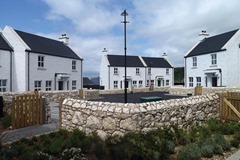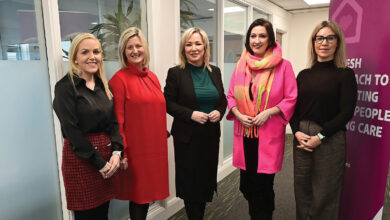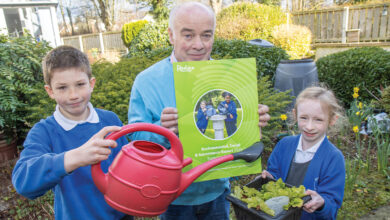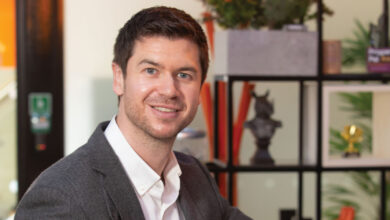Positive credit rating means better deals
 An A+ rating will enable Apex to deliver better deals as part of its ambitions to build over 2,000 homes by 2020.
An A+ rating will enable Apex to deliver better deals as part of its ambitions to build over 2,000 homes by 2020.
International credit agency Standard and Poor’s has issued Derry/Londonderry-based Apex with an A+ rating in its first assessment of a Northern Ireland housing association.
The strong credit rating means the organisation can better refinance existing short-term bank loans and secure new long-term borrowing at more competitive rates.
The move has been welcomed by Social Development Minister Mervyn Storey MLA. Apex has been the largest developer of residential properties in Northern Ireland over the past seven years and plans to build 2,000 social and affordable homes over the next five years
Gerry Kelly, Chief Executive of Apex, said: “The outcome of the credit rating is a huge vote of confidence in Apex’s financial standing and business management and will help underpin future development plans. The rating provides independent third party accreditation for all those doing business and wishing to do business with Apex and firmly puts the association in the market place for long-term private finance. Apex can now set a clear direction of travel that will see it continue to be one of the main providers of social and affordable housing in Northern Ireland.”
 In awarding an A+ rating, Standard and Poor’s recognised Apex as a having “a strong enterprise profile based on good operational performance” with a “strong financial profile, based on strong liquidity, moderate debt levels, adequate financial performance and prudent financial policies”.
In awarding an A+ rating, Standard and Poor’s recognised Apex as a having “a strong enterprise profile based on good operational performance” with a “strong financial profile, based on strong liquidity, moderate debt levels, adequate financial performance and prudent financial policies”.
The report also acknowledged the very important public role of the housing association movement and effective partnership working with government in the Social and Affordable Housing Programme.
Minister Storey said: “I welcome Apex’s announcement that they have been awarded with an A+ credit rating; the first for a Northern Ireland housing association. This will help them to attract additional, competitive and alternative sources of funding and enable the association to further meet its social housing development objectives. This in turn will contribute to the delivery of my department’s objective to address social housing demand. It also demonstrates the strengths and credibility of the housing sector here and its regulators, particularly in comparison to other UK regions.”
As part of its review, Standard and Poor’s met with representatives from the Department of Finance and Personnel and the Department for Social Development to determine the level of government support available to the housing association movement generally. Apex was assisted in this exercise by its London-based treasury management consultants, TradeRisks.
Apex is working with its treasury advisors and Board to develop a long term funding strategy. It is also at advanced discussions with the European Investment Bank.
10 Butcher Street
Derry/Londonderry, BT48 6HL
Tel: 028 7130 4800
Email: info@apexhousing.org
Web: www.apexhousing.org





